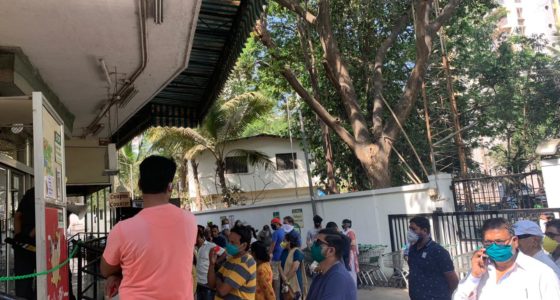Private equity (PE) investments in India saw a 4% decline in the first half of FY25, primarily due to reduced activity in the office real estate sector, according to ANAROCK Capital’s latest report. The total value of PE investments dropped to $2.3 billion from $2.4 billion in the same period last year, with the number of deals also decreasing from 24 in H1 FY24 to 17 in H1 FY25.
Shobhit Agarwal, Managing Director and CEO of ANAROCK Capital, attributed the decline in office sector investments to the retreat of foreign investors, influenced by global factors such as geopolitical tensions and elevated interest rates. However, he noted that foreign investment in Indian real estate remained stable overall, primarily due to the landmark $1.54 billion warehousing deal between Abu Dhabi Investment Authority (ADIA) and KKR, involving Reliance Retail’s logistics and warehouse assets.
Industrial & Logistics Sector Rises to Prominence
In a major shift, the industrial and logistics sector dominated PE investments, capturing 67% of the total funding in the first half of FY25. This represents a significant surge from just 16% in the same period last year. The growth in this sector is driven by robust demand from manufacturing, e-commerce, consumption, and third-party logistics (3PL), with investors particularly favoring high-quality, Grade A assets that emphasize ESG (Environmental, Social, and Governance) criteria.
A standout deal in the first half was the Reliance-ADIA/KKR transaction, which accounted for approximately 67% of the total PE investments. This deal, involving warehouses located across multiple cities in India, was structured as a hybrid transaction, with 55% financed by senior debt, 41% through subordinated non-convertible debentures (NCDs), and the remaining balance in equity.
Decline in Office Sector, Rise in Residential Investments
While the industrial sector thrived, the office real estate sector saw a sharp 79% decline in PE investment. Foreign investors, who have traditionally been major players in this segment, appear to be retreating amid global uncertainties.
Conversely, residential real estate saw an uptick, with investments rising from 8% in H1 FY24 to 17% in H1 FY25. Despite challenges in the broader economy, residential investments grew as strong pre-sales and increased involvement from public sector banks in construction finance reduced the need for high-cost private equity funding.
Average Deal Size Increases Amid Fewer Transactions
The average ticket size for PE deals jumped by 23% year-on-year, primarily driven by the massive Reliance-ADIA/KKR warehousing transaction. This rise in deal size came amid a 29% reduction in the number of deals, pushing the average deal size from $104 million in H1 FY24 to $128 million in H1 FY25.
Hyderabad Emerges as Key Investment Hub
Hyderabad emerged as a leading destination for private equity investments in the first half of FY25, attracting $284 million, or 12% of the total PE investments in India. In contrast, Mumbai’s share dropped to 9%, down from 23% in the same period last year.
The report also highlighted the ongoing dominance of foreign investors in the Indian real estate sector, with foreign funds contributing 87% of the total investments in the first half of FY25, virtually unchanged from 86% in the previous year.
Equity vs Debt: A Shift in Funding Mix
Funding structures also showed a shift in H1 FY25. The share of debt in transactions increased to 17% from 10% in H1 FY24, while equity transactions dropped to 17%, down from 87% in the previous year. The large Reliance-ADIA/KKR deal, which involved a mix of debt and equity, largely accounted for this shift.
Sectoral Insights
ANAROCK Capital’s report also provided insights into sector-specific trends:
- Residential Sector: PE investments in residential real estate grew to 17% of the total deals, reflecting increased activity. However, the sector is expected to see reduced demand for high-cost private equity financing as more PSU banks enter the construction finance space.
- Office Sector: The office sector’s traditionally strong performance has been impacted by global challenges. Despite this, the office leasing market showed resilience, driven by the expansion of Global Capital Centres and flexible workspaces. Easing interest rates could revive investor interest in this segment.
- Industrial & Logistics Sector: The industrial sector remains a key area of focus for investors, particularly due to the growing demand for high-quality logistics infrastructure and a strong focus on sustainability.
In conclusion, the first half of FY25 marked a notable shift in the Indian private equity landscape, with the industrial and logistics sectors emerging as dominant investment areas. The outlook for the remaining half of the year will depend largely on global economic conditions, interest rate movements, and sector-specific performance trends.
Also Read: Logicap and Mitsubishi Estate Form Joint Venture for Industrial and Logistics Development in India








